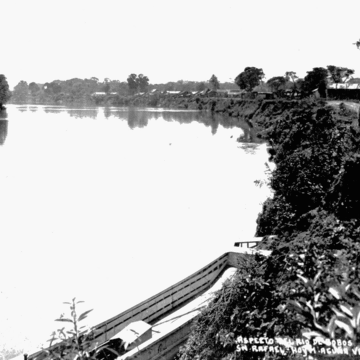In Strokes of Water and Earth: Elemental Histories of Frenchness and Agricultural Colonization in Central Veracruz, Mexico, 19th-21st C
François G. Richard, PhD
Department of Anthropology & Department of Race, Diaspora and Indigeneity,
University of Chicago
In 1833, peasants from Bourgogne founded an agricultural colony on the banks of the Río Nautla, in the small pueblo of Jicaltepec in central Veracruz, Mexico. Despite hard beginnings, the French community eventually prospered, and came to play a central role in the capitalist reconfiguration of the region’s agrarian milieu – while maintaining a curated sense of its own Frenchness even when most residents began to adopt Mexican citizenship after 1916. Today, the local past continues to be interpreted in Gallic colors: a settler colonial tale of landscape carved by cultural industry and ethnoracial spirit, which largely erases indigeneity and dispossession from geography. A closer look at geo-material constellations, however, reveals a more nuanced portrait of ‘French’ history interrupted by, dissolving into, and contoured through the elemental histories of earth and river, woven into local geography.
What might it mean to engage with the French presence in central Veracruz through the poetics of its relation to soil and water? How were attempts to create terroir as a ground to identity constantly undermined by the instability of elements meant to lend givenness to its existence? Examining the composition of Frenchness in the Nautla area at the interface of water and land not only troubles the neat ontological rubrics bolstering triumphal accounts of French commercial agriculture, but it also ‘ungrounds’ them: exposing their permeability to agencies that exceeded them, revealing constellations of absence and loss that reverberate across expatriate French histories, and offering glimpses of otherwises to the certainties of racial capitalism seemingly stamped in regional geography.
